
Labor market reports
Our company has been conducting employer surveys for many years – we have been publishing our quarterly “Employment Outlook Survey” report and, since 2006, a yearly “Talent Shortage” report. ManpowerGroup Poland has actively participated in all the survey projects since 2008.
Currently, ManpowerGroup’s surveys are conducted in over 40 countries, on a sample of more than 65,000 employers. The aim of these measures is to provide a better understanding of the world of labor and to communicate trends which significantly impact both companies and jobseekers.
If you are interested in the labor market and you want to follow the latest trends in this field, sign up for our mailing list to receive our reports.
ManpowerGroup Employment Outlook Survey
-
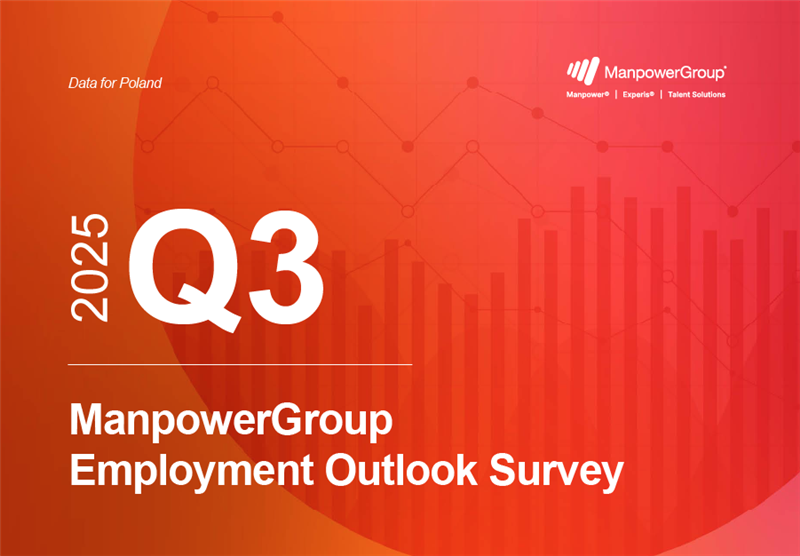 06-2025
06-2025ManpowerGroup Employment Outlook Survey Q3 2025
"The ManpowerGroup Employment Outlook Survey" analyzes employers' recruitment plans for Q3 2025. The analysis is a source of information for candidates about the recruitment forecasts of companies in a particular region of the country, as well as the industry. The report based by interviewing a representative sample of 524 employers in Poland. The publication is also a source of data on global markets, with over 40,000 employers from around the world participating in the analysis.
-
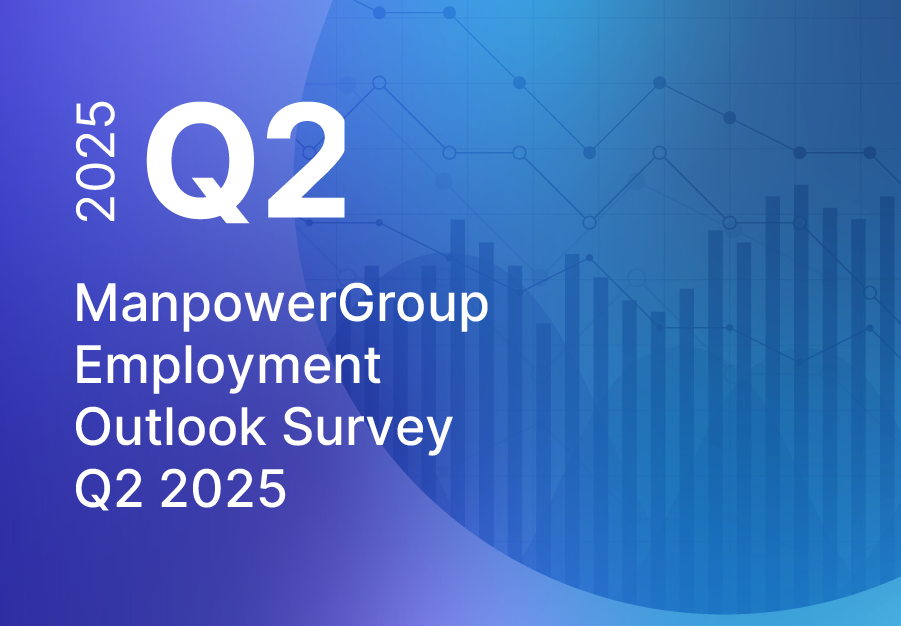 03-2025
03-2025The ManpowerGroup Employment Outlook Survey Q2 2025
"The ManpowerGroup Employment Outlook Survey" analyzes employers' recruitment plans for Q2 2025. The analysis is a source of information for candidates about the recruitment forecasts of companies in a particular region of the country, as well as the industry. The report based by interviewing a representative sample of 525 employers in Poland. The publication is also a source of data on global markets, with over 39,000 employers from around the world participating in the analysis.
-
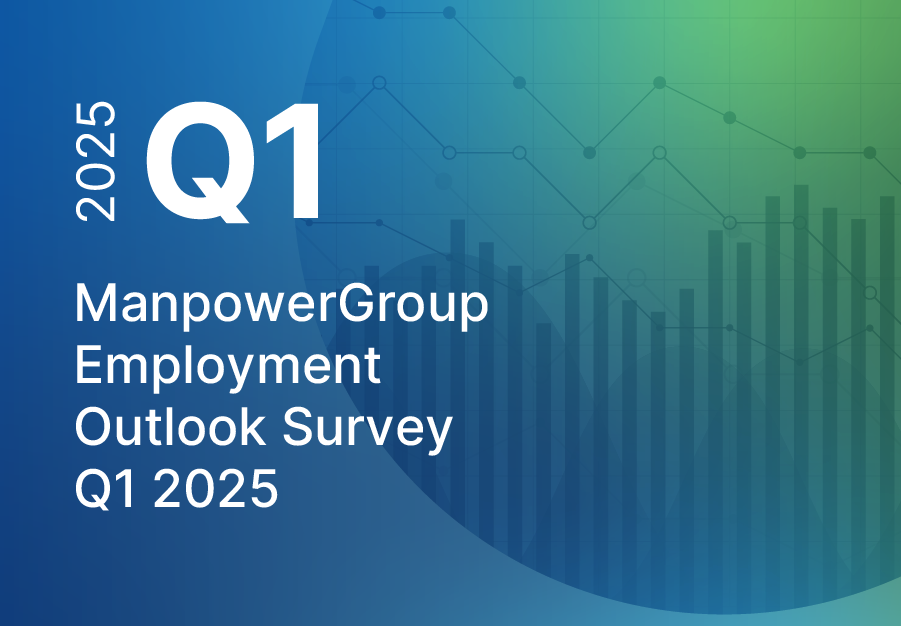 12-2024
12-2024ManpowerGroup Employment Outlook Survey Q1 2025
“The ManpowerGroup Employment Outlook Survey” analyzes employers’ recruitment plans for Q1 2025. The analysis is a source of information for candidates about the recruitment forecasts of companies in a particular region of the country, as well as the industry. The report based by interviewing a representative sample of 525 employers in Poland. The publication is also a source of data on global markets, with over 40,000 employers from around the world participating in the analysis.
-
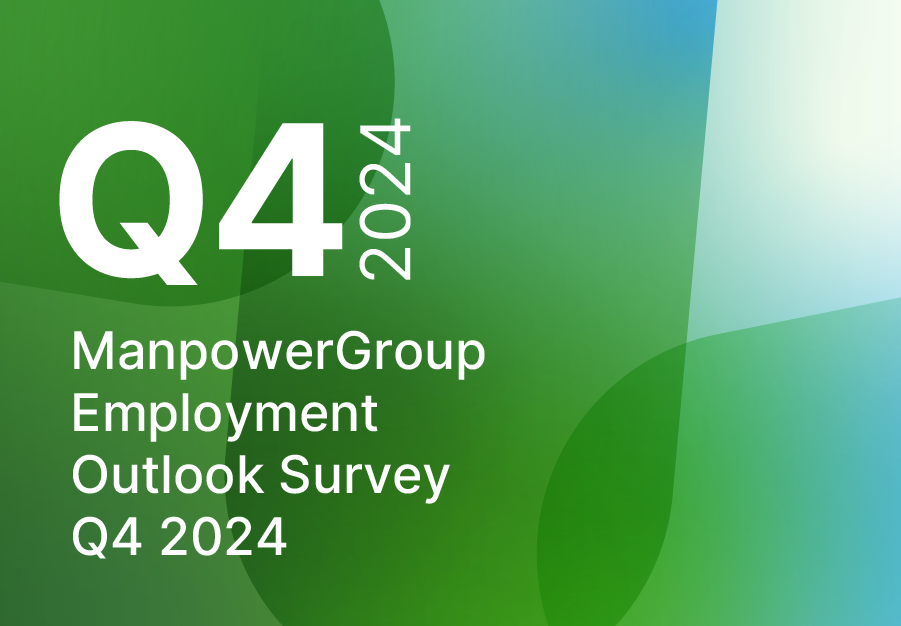 09-2024
09-2024ManpowerGroup Employment Outlook Survey Q4 2024
“The ManpowerGroup Employment Outlook Survey” analyzes employers’ recruitment plans for Q4 2024. The analysis is a source of information for candidates about the recruitment forecasts of companies in a particular region of the country, as well as the industry. The report based by interviewing a representative sample of 525 employers in Poland.
-
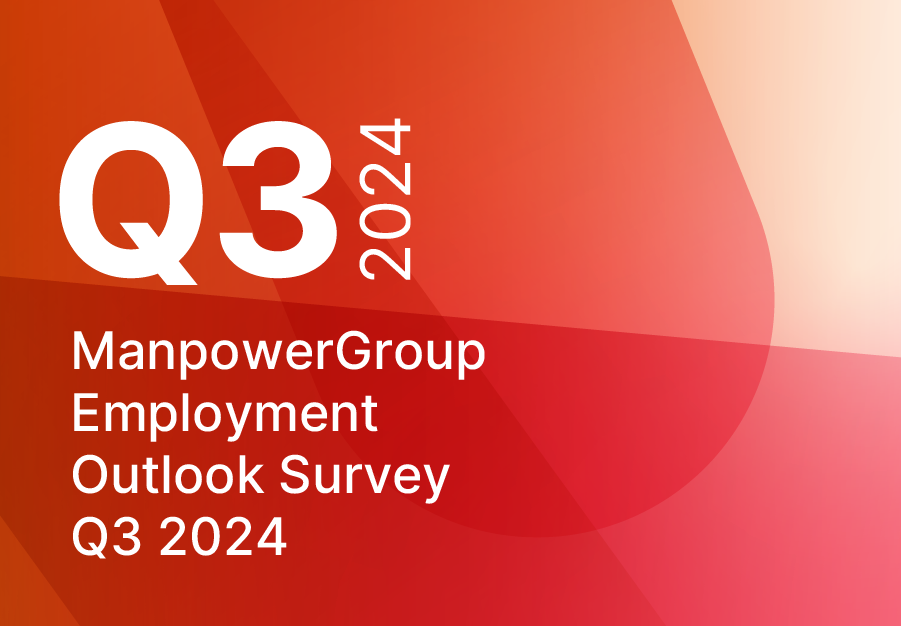 06-2024
06-2024ManpowerGroup Employment Outlook Survey Q3 2024
“The ManpowerGroup Employment Outlook Survey” analyzes employers’ recruitment plans for Q3 2024. The analysis is a source of information for candidates about the recruitment forecasts of companies in a particular region of the country, as well as the industry. The report based by interviewing a representative sample of 525 employers in Poland.
-
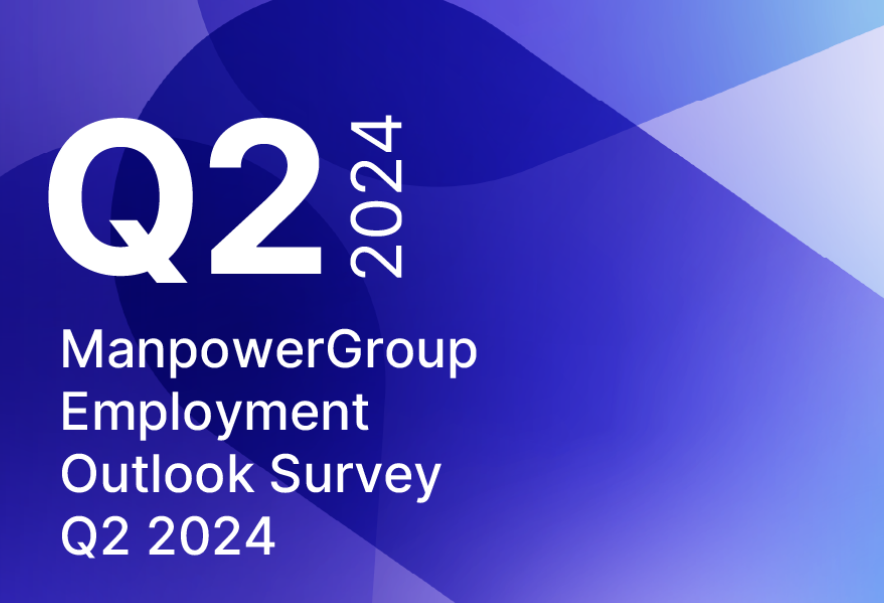 03-2024
03-2024ManpowerGroup Employment Outlook Survey Q2 2024
“The ManpowerGroup Employment Outlook Survey” analyzes employers’ recruitment plans for Q2 2024. The analysis is a source of information for candidates about the recruitment forecasts of companies in a particular region of the country, as well as the industry. The report based by interviewing a representative sample of 525 employers in Poland.
-
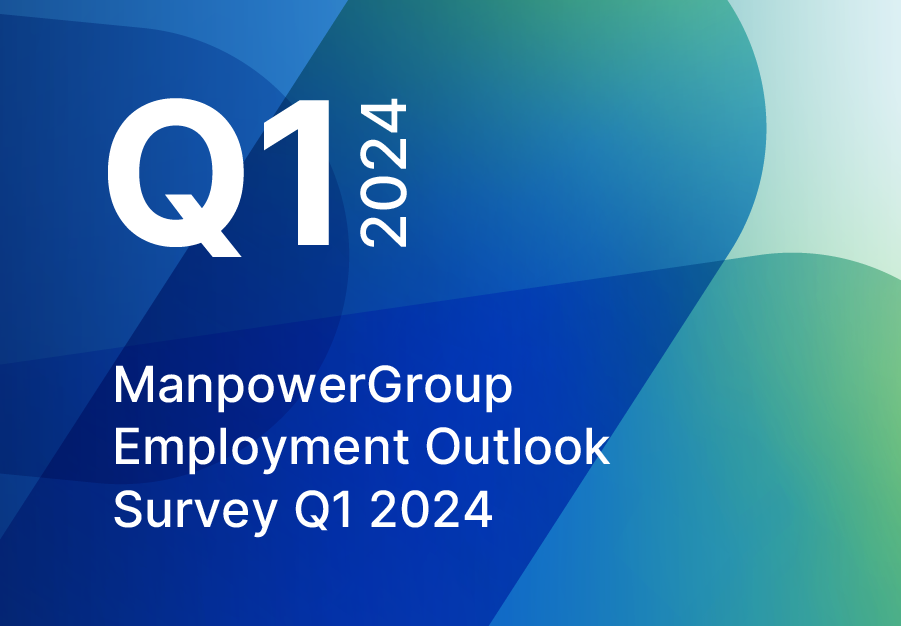 12-2023
12-2023ManpowerGroup Employment Outlook Survey Q1 2024
“The ManpowerGroup Employment Outlook Survey” analyzes employers’ recruitment plans for Q1 2024. The analysis is a source of information for candidates about the recruitment forecasts of companies in a particular region of the country, as well as the industry. The report based by interviewing a representative sample of 525 employers in Poland.
-
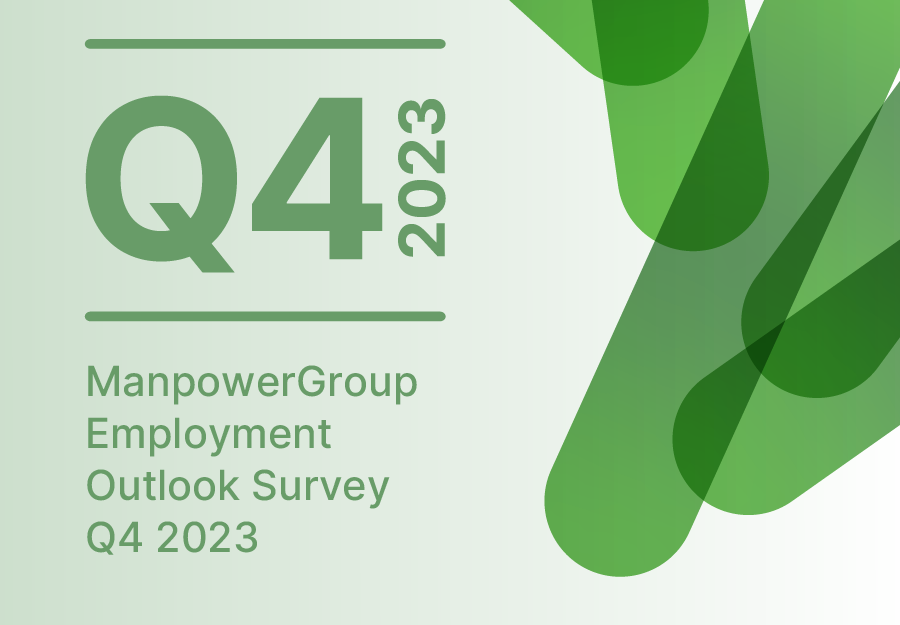 09-2023
09-2023ManpowerGroup Employment Outlook Survey Q4 2023
“The ManpowerGroup Employment Outlook Survey” analyzes employers’ recruitment plans for Q4 2023. The analysis is a source of information for candidates about the recruitment forecasts of companies in a particular region of the country, as well as the industry. The report based by interviewing a representative sample of 510 employers in Poland.
-
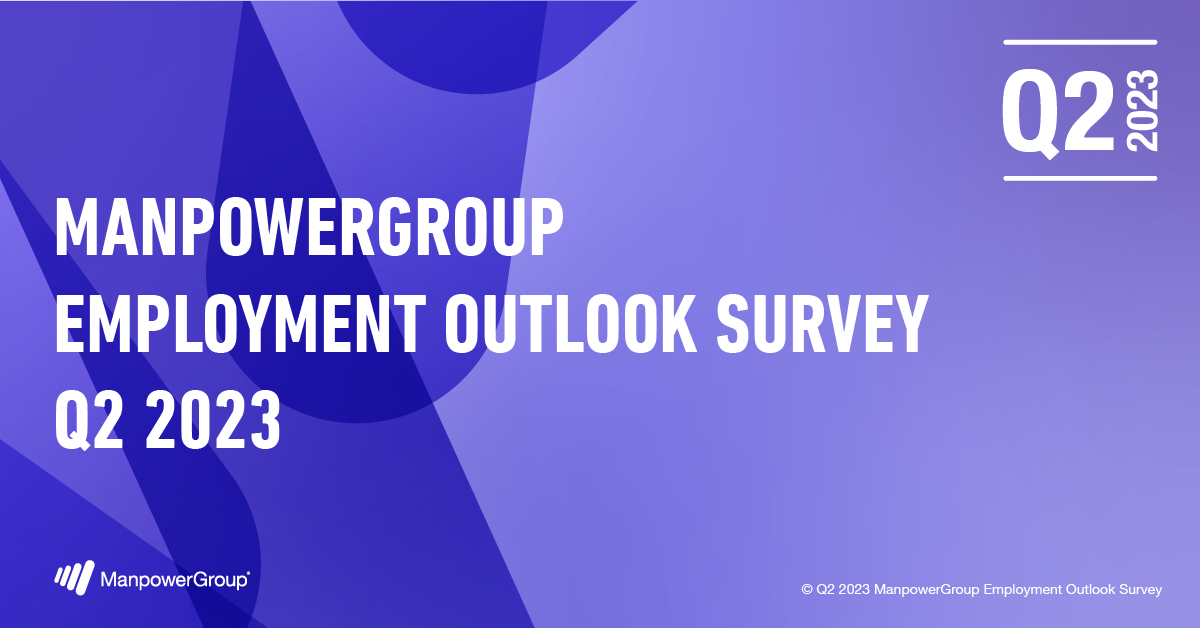 03-2023
03-2023ManpowerGroup Employment Outlook Survey Q2 2023
The ManpowerGroup Employment Outlook Survey" analyzes employers' recruitment plans for the Q2 of 2023. The analysis is a source of information for candidates about the recruitment forecasts of companies in a particular region of the country, as well as the industry. The report based by interviewing a representative sample of 510 employers in Poland.
-
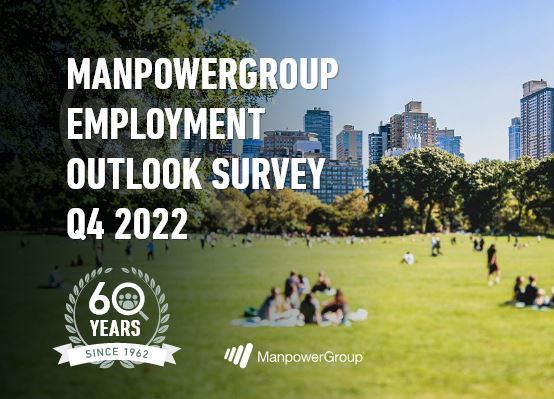 09-2022
09-2022ManpowerGroup Employment Outlook Survey Q4 2022
ManpowerGroup has just published the latest report, in which companies reveal their employment plans for the fourth quarter of 2022. The Net Employment Outlook for Polish is relatively stable +1%. This result is lower by 9 percentage points than the forecast declared for the third quarter 2022. 24% of the surveyed companies plan to hire new teams, but the same percentage predict layoffs. Almost half of companies (48%) want to leave the number of employees at the current level, and only 4% do not know the recruitment plans for the next quarter. The report presents plans of companies' employment divided into 6 regions Polish, 10 sectors and 4 company sizes.
-
 05-2022
05-2022ManpowerGroup Employment Outlook Survey Q3 2022
ManpowerGroup surveyed a total of 40,353 employers in 40 countries and territories to measure employer hiring intentions for the third quarter of 2022. Interviewing was carried out while effects of the COVID-19 pandemic were still prevalent. The survey findings for the July to September 2022 period are also likely to reflect the ongoing economic disruption in some countries resulting from the conflict between Ukraine and Russia, as well as from cost-of-living, inflation, and energy pressures. Polish employers report considerable hiring prospects for the June to September period. With 27% of employers anticipating an increase in payrolls, 17% expecting a decrease, and 54% forecasting no change, the Net Employment Outlook is +10%. Once the datais adjusted to allow for seasonal variation, the Outlook stands at +11%.
-
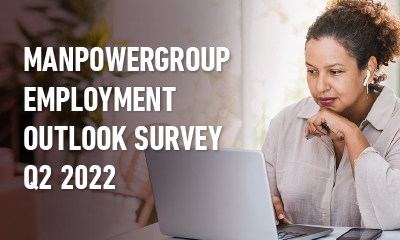 03-2022
03-2022ManpowerGroup Employment Outlook Survey Q2 2022
Job seekers in Poland can anticipate a positive staffing climate during Q2 2022, expecting a +5% Net Employment Outlook (NEO). With a NEO of +30%, hiring decision makers in the Manufacturing sector expect the strongest hiring market. With a NEO of -11%, employers in Primary Production expect the least competitive hiring market. Reporting a NEO of +12%, hiring managers in the South-West region expect the best-performing job market for the coming quarter. Reporting a NEO of -1%, employers in the South expect the least competitive staffing climate for the coming quarter. The best-performing organization sizes are organizations with 250+ employees, with organizations reporting a Net Outlook of +10%. Reporting a NEO of -3%, hiring decision makers in organizations with less than 10 employees expect the least competitive hiring market in the next quarter.
-
 12-2021
12-2021ManpowerGroup Employment Outlook Survey Q1 2022
We introduce the special, jubilee edition of the ManpowerGroup Employment Outlook Survey, which analyses employers' hiring plans for the first three months of 2022. According to the latest report, in Q1 2022 employers will have to face the competition for candidates at a record level. The Net Employment Outlook (the difference between the percentage of companies planning to expand their teams and the percentage planning to reduce the employment) reached + 25% and is one of the highest results in Polish survey history. We encourage you to read the full report. We are convinced that it will be a valuable source of business knowledge.
-
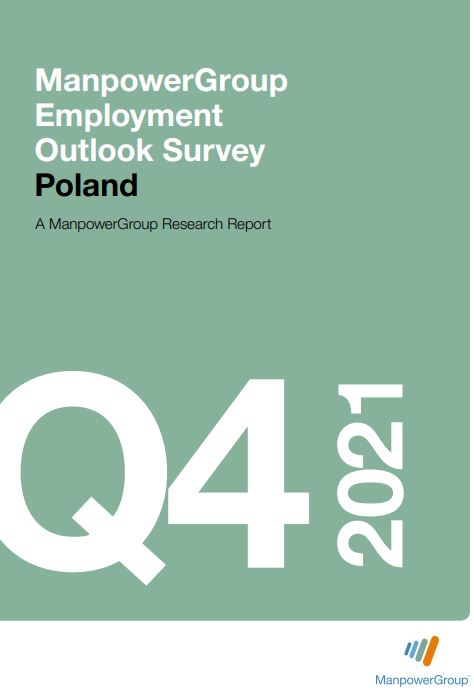 09-2021
09-2021ManpowerGroup Employment Outlook Survey Q4 2021
We are happy to present the latest ManpowerGroup Employment Outlook Survey, in which we analyze the employer recruitment plans for the last quarter of 2021. The assembled data show considerable optimism among the employers, with their willingness, to actively look for new staff members. 17% of employers plan to expand their teams, while 74% want to keep employees' numbers unchanged. Only 5% of companies intend to reduce employment. 4% of organizations do not have any specified plans yet. Where will the demand for employees be the strongest? How does the polish market forecast data look in comparison to the global ones? We invite you to read the full version of ManpowerGroup's latest survey.
-
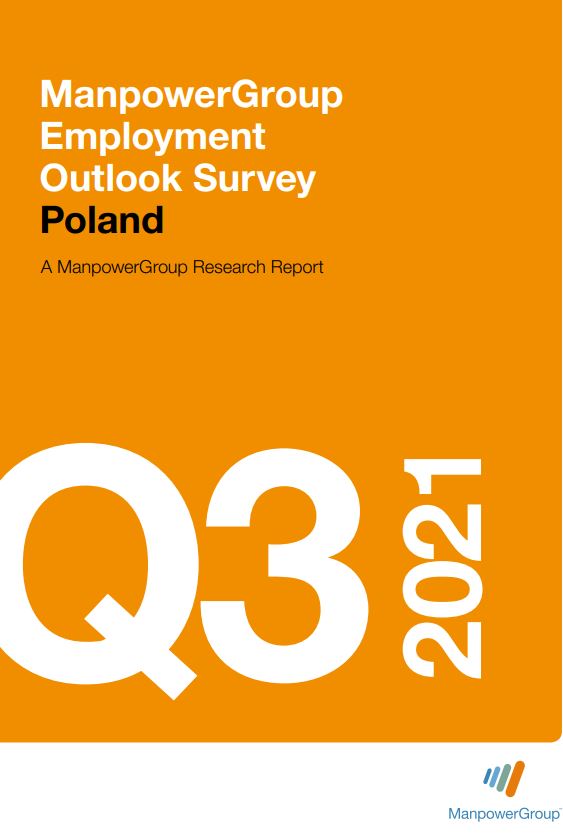 06-2021
06-2021ManpowerGroup Employment Outlook Survey Q3 2021
We present the latest “ManpowerGroup Employment Outlook Survey” in which we analyze companies’ recruitment plans in the upcoming three months. Polish employers report cautiously optimistic hiring plans for the third quarter of 2021. 11% of Polish companies in the period July – September are going to expand their teams, 84% are going to keep the number of the employed unchanged and 2% are going to reduce the number of employed. In which regions of Poland rivalry for candidates will be the biggest? What demand for candidates declare entrepreneurs in particular sectors? Detailed information about it are presented in “ManpowerGroup Employment Outlook Survey” for the third quarter 2021.
-
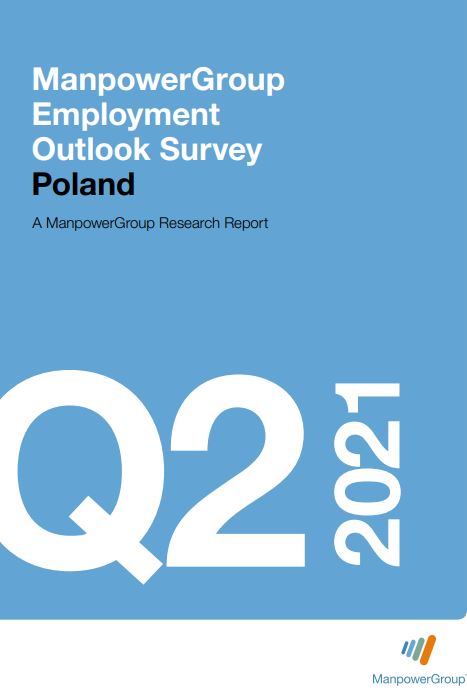 03-2021
03-2021ManpowerGroup Employment Outlook Survey Q2 2021
The ManpowerGroup Employment Outlook Survey for the second quarter 2021 was conducted by interviewing a representative sample of 557 employers in Poland.
-
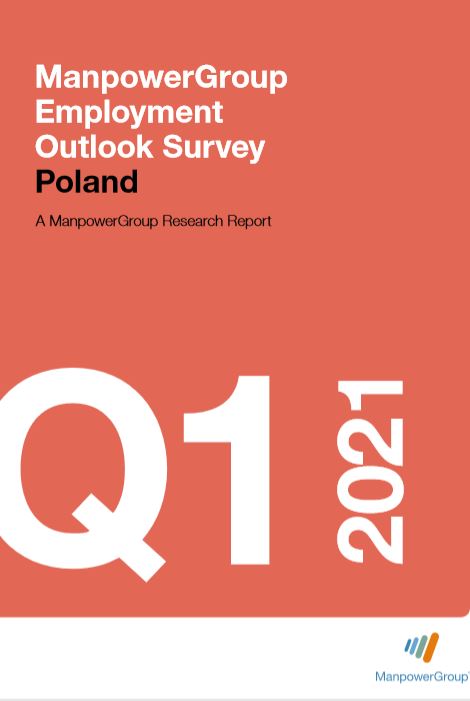 12-2020
12-2020ManpowerGroup Employment Outlook Survey Q1 2021
The ManpowerGroup Employment Outlook Survey for the first quarter 2021 was conducted by interviewing a representative sample of 750 employers in Poland.
-
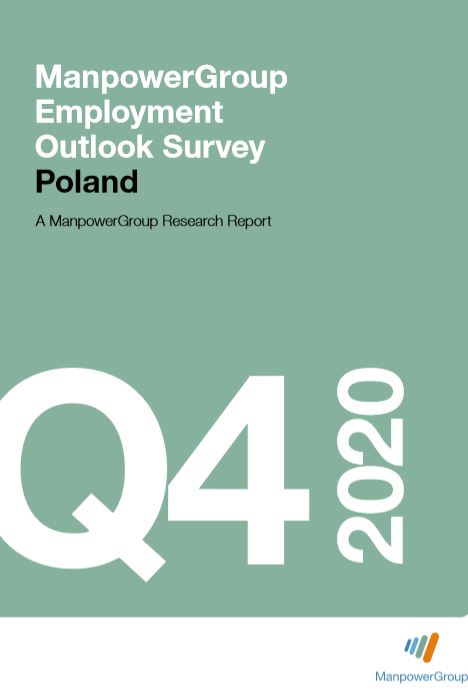 09-2020
09-2020ManpowerGroup Employment Outlook Survey Q4 2020
The ManpowerGroup Employment Outlook Survey for the fourth quarter 2020 was conducted by interviewing a representative sample of 750 employers in Poland.
-
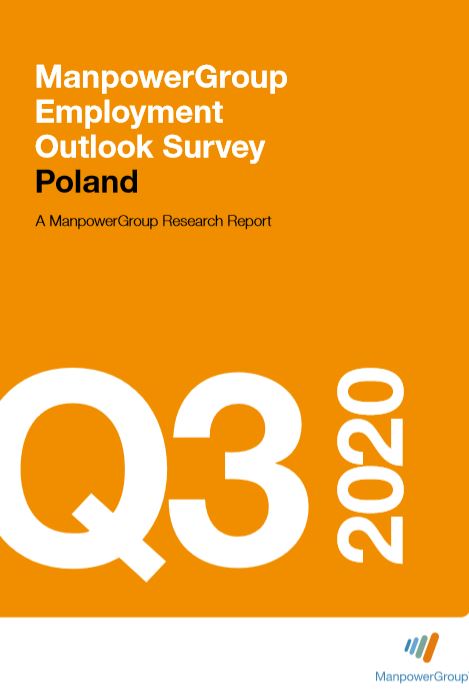 06-2020
06-2020ManpowerGroup Employment Outlook Survey Q3 2020
The ManpowerGroup Employment Outlook Survey for the third quarter 2020 was conducted by interviewing a representative sample of 750 employers in Poland.
-
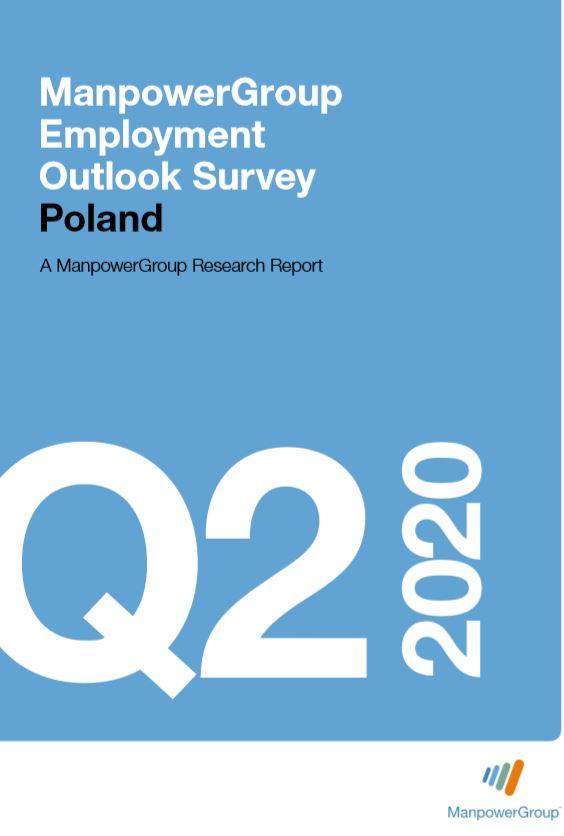 03-2020
03-2020ManpowerGroup Employment Outlook Survey Q2 2020
The ManpowerGroup Employment Outlook Survey for the second quarter 2020 was conducted by interviewing a representative sample of 750 employers in Poland.
-
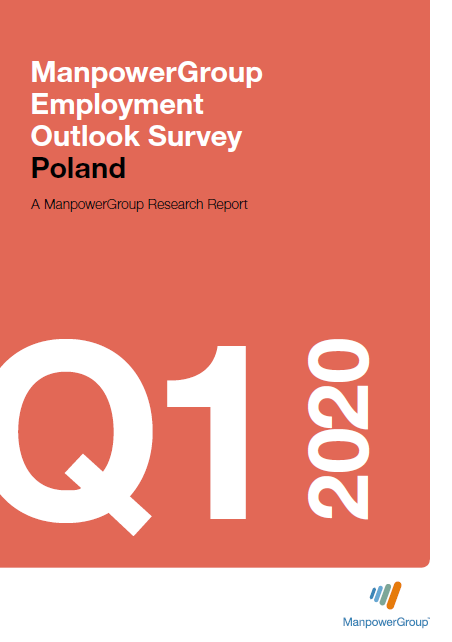 12-2019
12-2019ManpowerGroup Employment Outlook Survey Q1 2020
The ManpowerGroup Employment Outlook Survey for the first quarter 2020 was conducted by interviewing a representative sample of 750 employers in Poland.
-
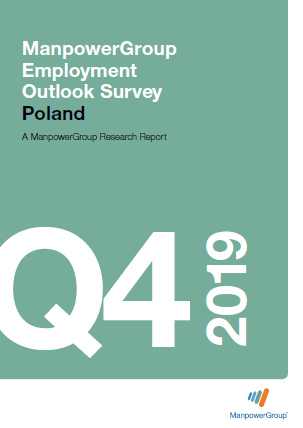 09-2019
09-2019ManpowerGroup Employment Outlook Survey Q4 2019
The ManpowerGroup Employment Outlook Survey for the forth quarter 2019 was conducted by interviewing a representative sample of 750 employers in Poland.
-
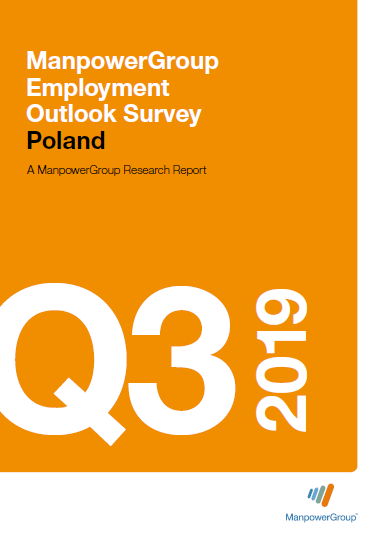 06-2019
06-2019ManpowerGroup Employment Outlook Survey Q3 2019
The ManpowerGroup Employment Outlook Survey for the third quarter 2019 was conducted by interviewing a representative sample of 751 employers in Poland.
-
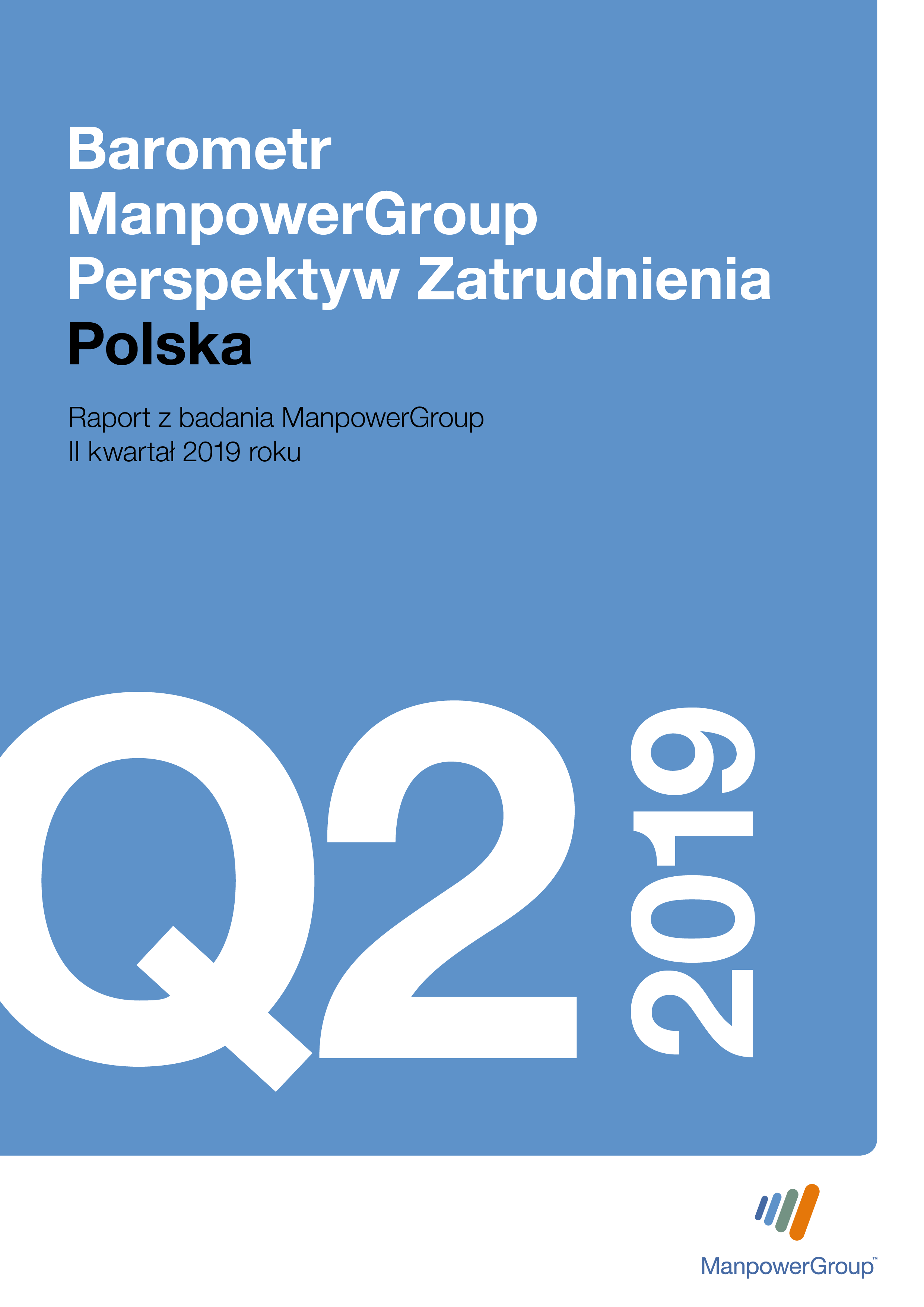 03-2019
03-2019ManpowerGroup Employment Outlook Survey Q2 2019
The ManpowerGroup Employment Outlook Survey for the second quarter 2019 was conducted by interviewing a representative sample of 751 employers in Poland.
-
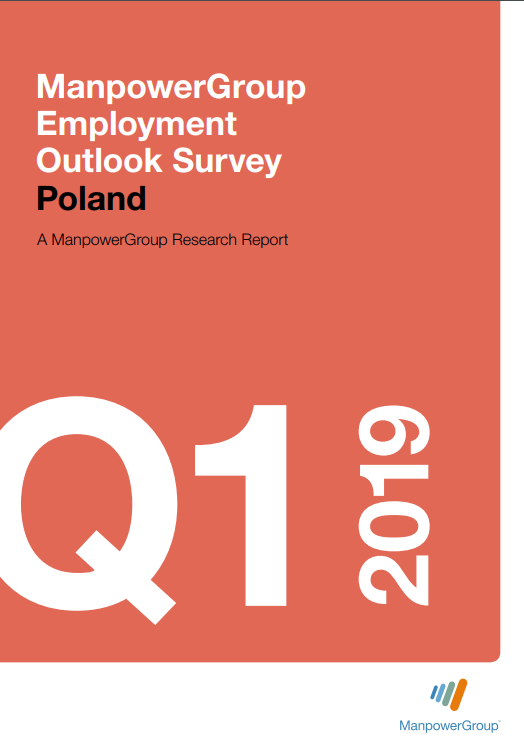 12-2018
12-2018ManpowerGroup Employment Outlook Survey Q1 2019
The ManpowerGroup Employment Outlook Survey for the first quarter 2019 was conducted by interviewing a representative sample of 756 employers in Poland.
-
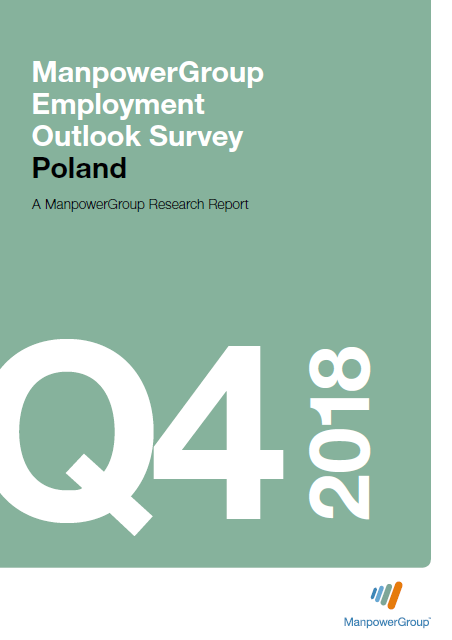 09-2018
09-2018ManpowerGroup Employment Outlook Survey Q4 2018
The ManpowerGroup Employment Outlook Survey for the forth quarter 2018 was conducted by interviewing a representative sample of 750 employers in Poland.
-
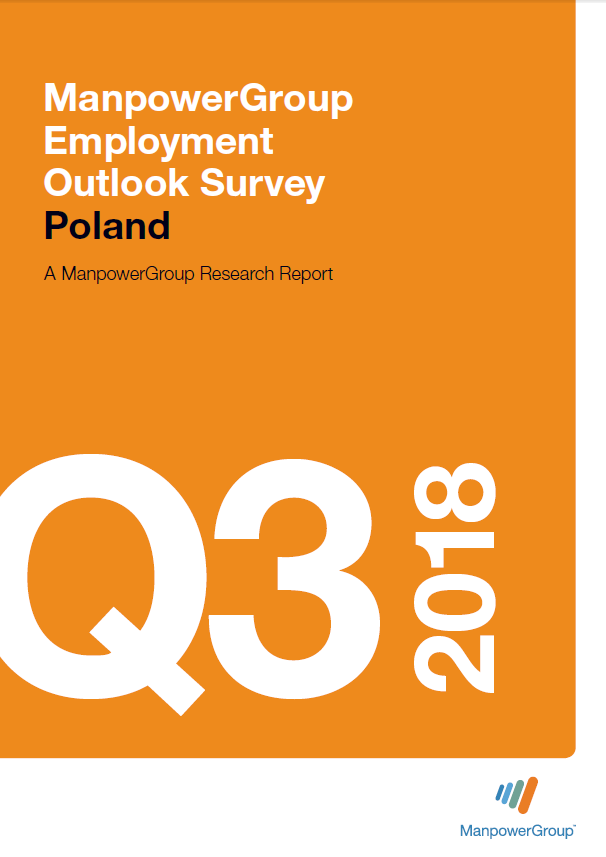 06-2018
06-2018ManpowerGroup Employment Outlook Survey Q3 2018
The ManpowerGroup Employment Outlook Survey for the third quarter 2018 was conducted by interviewing a representative sample of 750 employers in Poland.
-
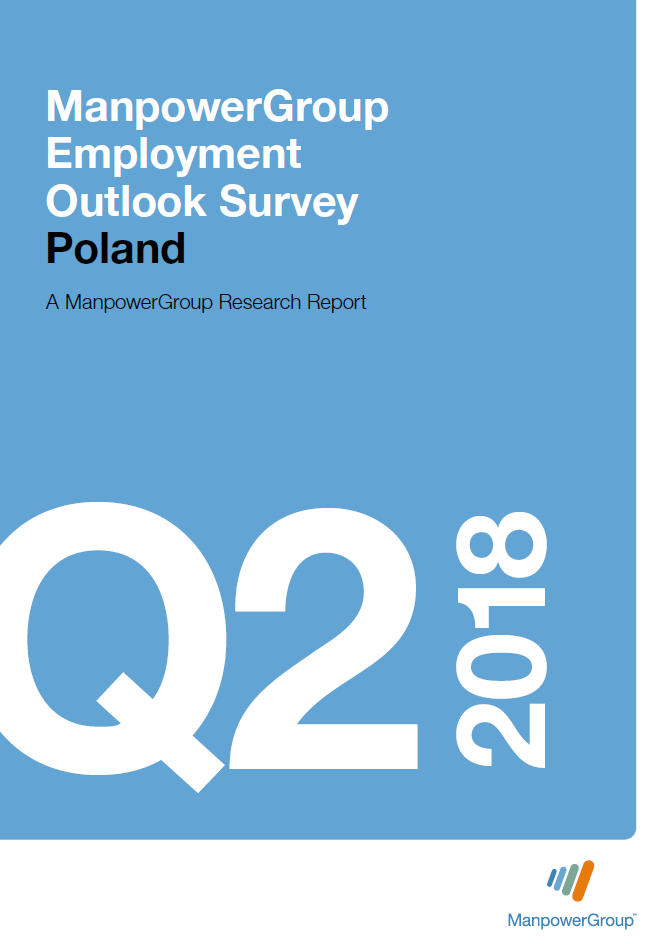 03-2018
03-2018ManpowerGroup Employment Outlook Survey Q2 2018
The ManpowerGroup Employment Outlook Survey for the second quarter 2018 was conducted by interviewing a representative sample of 752 employers in Poland.
-
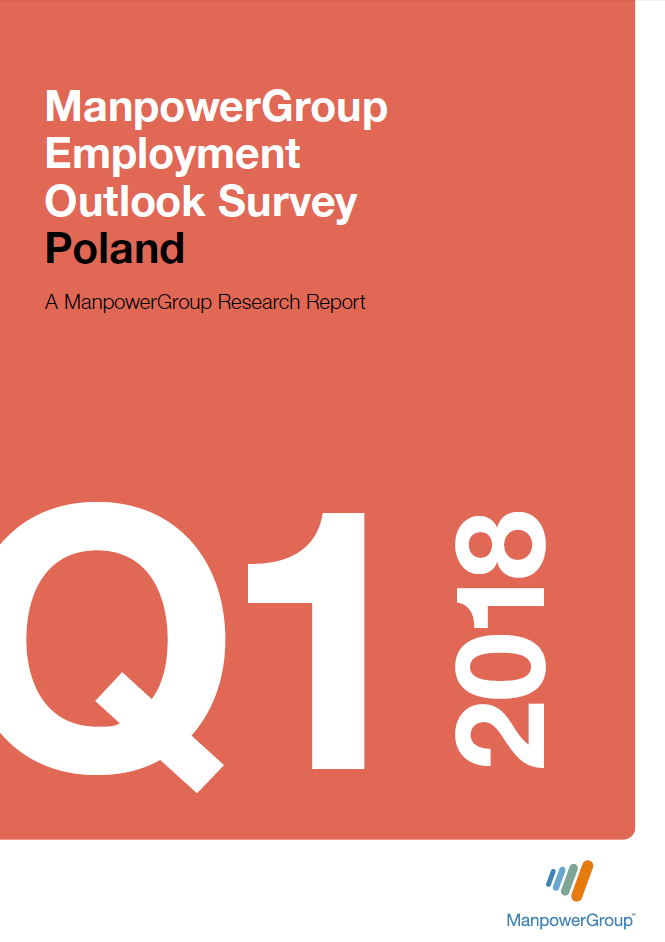 12-2017
12-2017ManpowerGroup Employment Outlook Survey Q1 2018
The ManpowerGroup Employment Outlook Survey for the first quarter 2018 was conducted by interviewing a representative sample of 750 employers in Poland.
Human Age
Talent Shortage
-
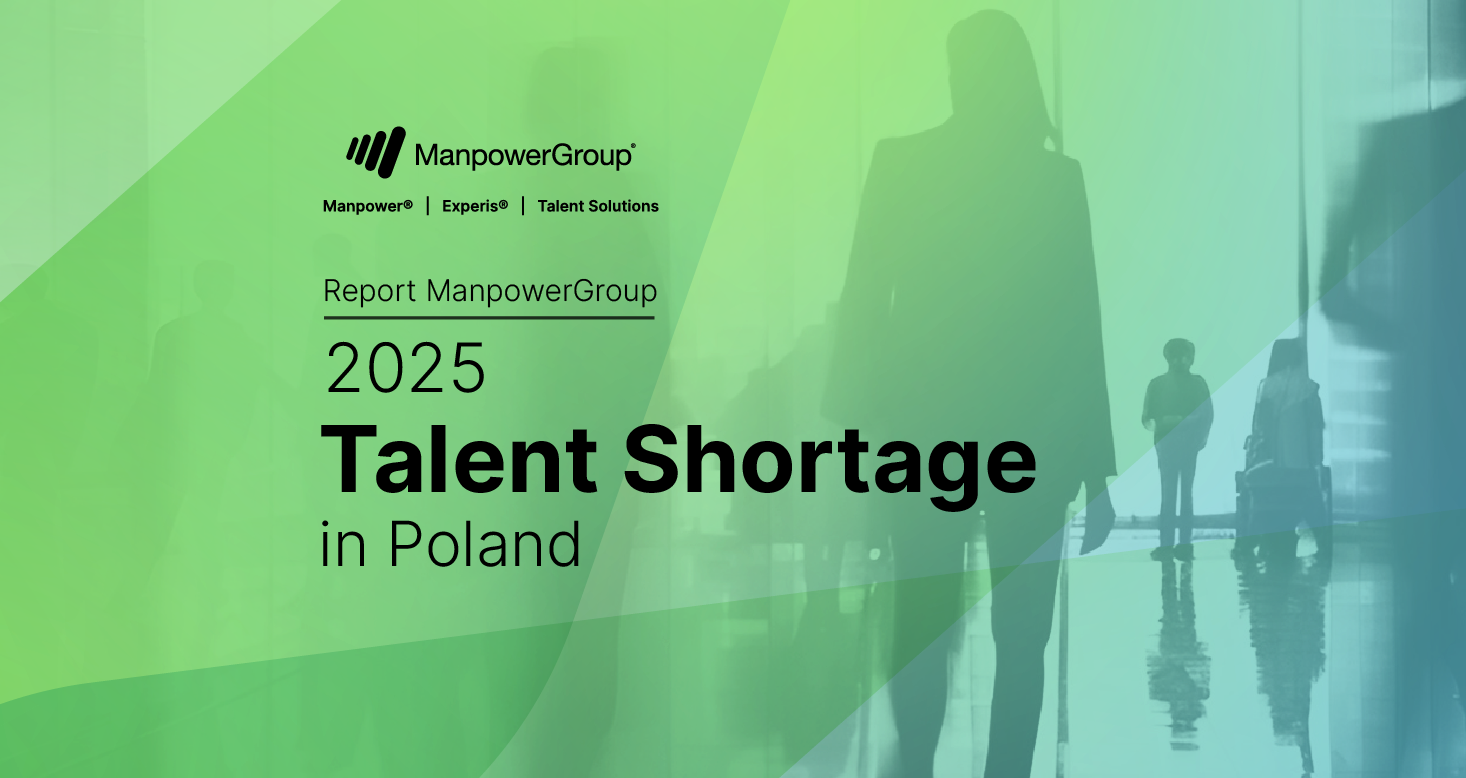 01-2025
01-2025ManpowerGroup Talent Shortage 2025
59% polish companies are struggled with talent shortage, globally it is 74%. Organizations indicate the biggest difficult in recruiting suitable candidates with competences in the engineering (24%). The scale of the talent shortage varies depending on the industry – the largest gap is noticed by employers of transport, logistics and automotive (71%).
-
 01-2024
01-2024Talent Shortage 2024
In Poland, 66% of employers says about a shortage of talent, globally it is 75% of companies. The Financials & Real Estate (74%) and Communication Services (71%) industries declare the biggest difficult in finding right job candidates. A major challenge for employers is to recruit talent with necessary competencies as a IT & data skills (23%), engineering skills (22%) and operations & logistics skills (19%).
-
 04-2023
04-2023Talent Shortage 2023
In Poland, 72% of employers says about a shortage of talent, globally it is 77% of companies. The communications services (83%) and IT & technology (75%) industries declare the biggest difficult in finding right job candidates. A major challenge for employers is to recruit talent with both the necessary competencies and soft skills.
-
 07-2022
07-2022Talent Shortage 2022
ManpowerGroup has published the latest report presenting the scale of talent shortage in Poland and in the world. Publication presents data in shots for sectors, regions and sizes of organizations, shows what challenges companies face in global terms. 70% of Polish companies have difficulties in employing poeple with the desired competences. It is 11 percentage points less than in 2021. This is also less than the global average (75%). This is the first time in almost 10 years that the number of companies struggling to recruit new employees has fallen. Which industries has the biggest talent shortage? What competencies are most often sought by companies? Information about it you can find in the latest ManpowerGroup report "Talent shortage", presenting results on a global scale, as well as taking into account the specificity of the Polish market.
-
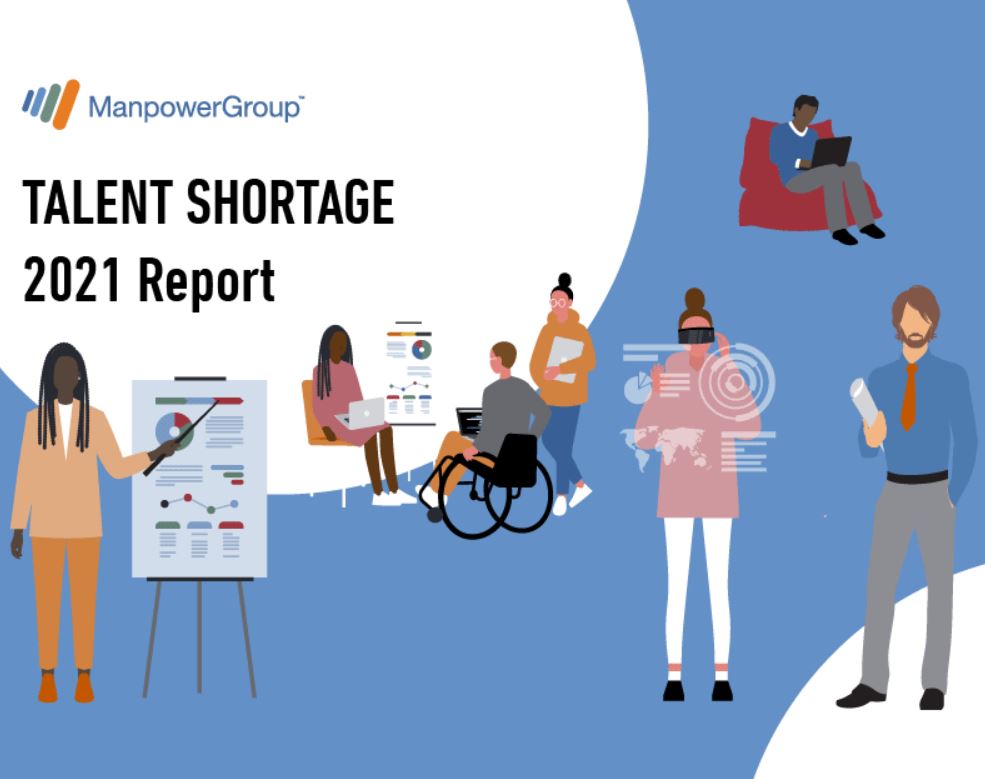 07-2021
07-2021Talent Shortage 2021
According to the latest ManpowerGroup report ‘Talent shortage’, acquiring candidates who have desirable skills is a challenge for 81% of Polish entrepreneurs. This number has increased by 11 percentage points when compared to 2019, and it is 30 points higher than in 2018. Talent shortage affects employers worldwide and it is indicated by 69% employers globally. Apart from talent shortage analysis, ManpowerGroup report elaborates on employers’ plans when it comes to home office continuing. The results are quite surprising and provide valuable source of business knowledge.
-
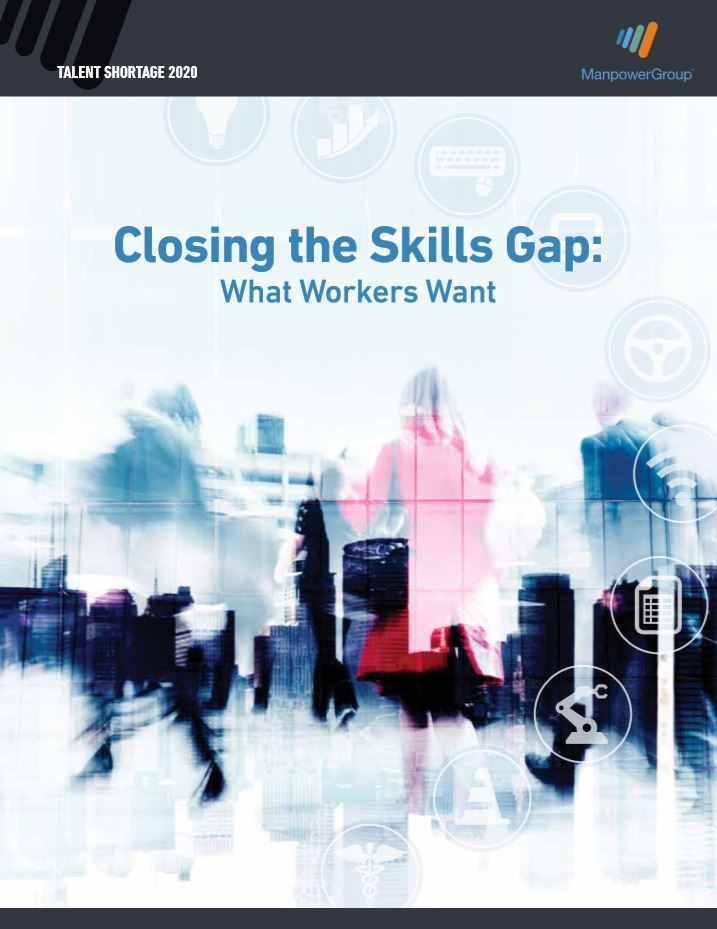 01-2020
01-2020Talent Shortage 2020
ManpowerGroup report „Closing the Skills Gap: What Workers Want” presents the scale of talents shortages what according to survey, is a problem for 70% employers in Poland and 54% companies worldwide and it also presents the list of 10 the most difficult professions to recruit.
The vital element of the report are the results of employees’ preferences survey considering the factors which make employer’s offer more attractive and, on the other hand, motivates the employee to stay at the current company. At the top of the list of employees’ priorities is to be paid adequately to the performed skills and experience, the second one is personalized development strategy and ultimately, challenging job.
How can employers reduce the problem of talent shortage? More details in the ManpowerGroup report. -
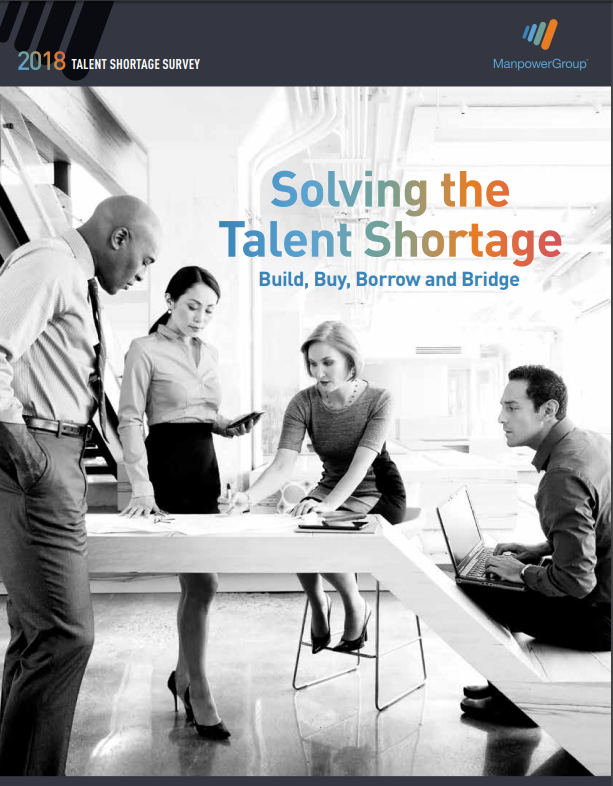 07-2018
07-2018Talent Shortage 2018
In the digital age, technology is transforming how work gets done, creating new roles that require new skills. At the same time, organizations are increasing headcount in 42 of the 43 countries and territories that we survey and many markets are nearing full employment. As a result, talent shortages are more acute than they have been for decades
Workforce Insights
-
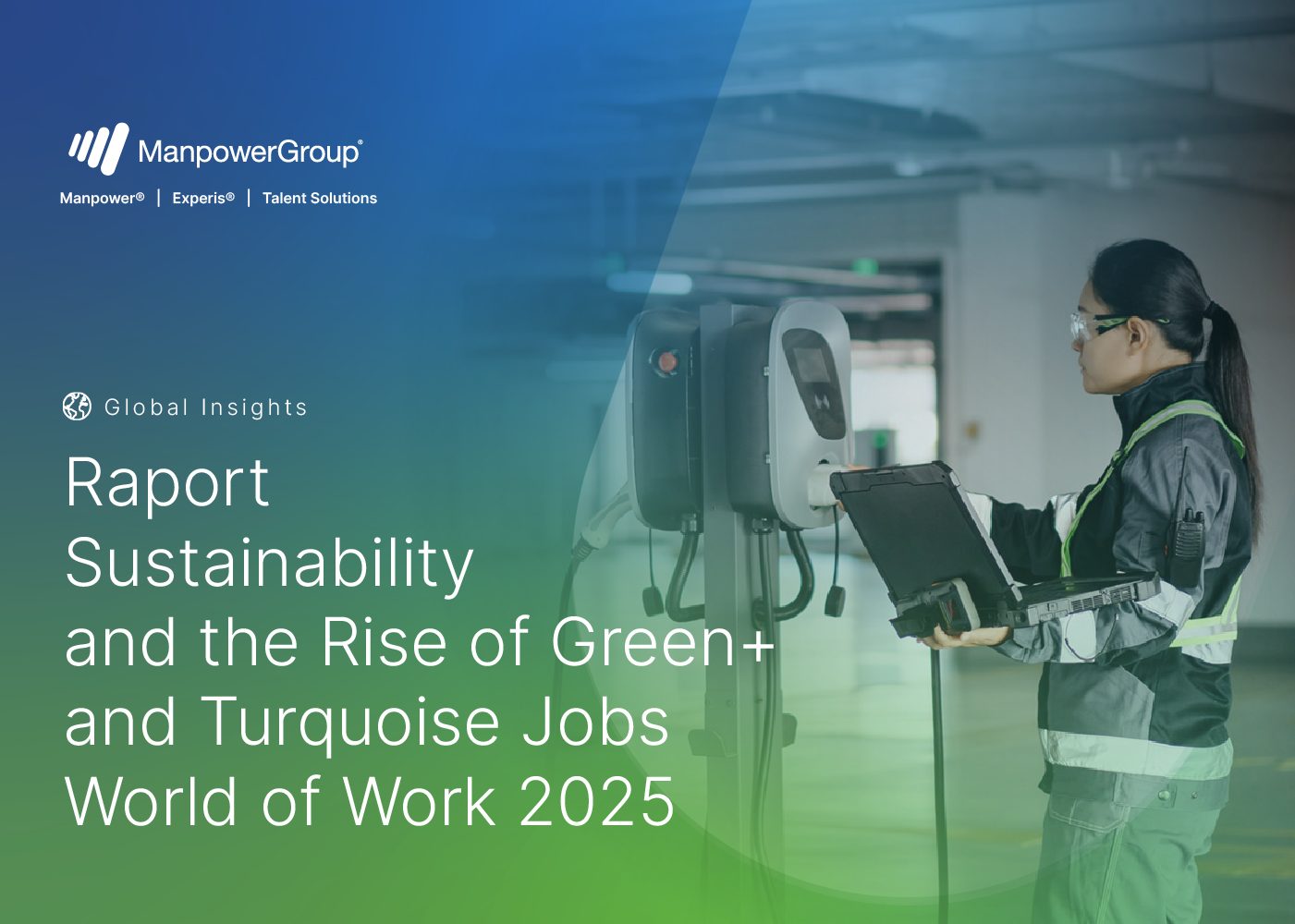 05-2025
05-2025Sustainability and the Rise of Green+ and Turquoise Jobs
The ManpowerGroup report “Sustainability and the Rise of Green+ and Turquoise Jobs” presents five global trends that will shape the labor market in light of the growing importance of sustainability. These include: the green transformation becoming a permanent part of business strategy, increasing diversity in career paths related to sustainability, turquoise as a new shade of the green future, the need to close skill gaps in green and turquoise professions, and sustainable green transformation as a protective shield for businesses.
-
 04-2025
04-2025The Experis CIO 2025 Outlook: Key Priorities for Tech Leaders
The Experis CIO 2025 Outlook: Key Priorities for Tech Leaders provides an in-depth analysis of the challenges and priorities shaping the role of today’s CIOs. The report examines how IT leaders navigate technological advancements to drive measurable business outcomes. The study surveyed nearly 1,400 IT leaders across nine countries, representing key industries such as finance, IT, communications, energy, and manufacturing. The analysis serves as a source of knowledge on the role of IT leaders in adapting business strategies to new challenges and technological opportunities.
-
 03-2025
03-2025Financials & Real Estate Industry World of Work 2025
ManpowerGroup's publication, “Financials & Real Estate Industry World of Work 2025” presents six the most important global trends in the industry for the coming months of this year.
-
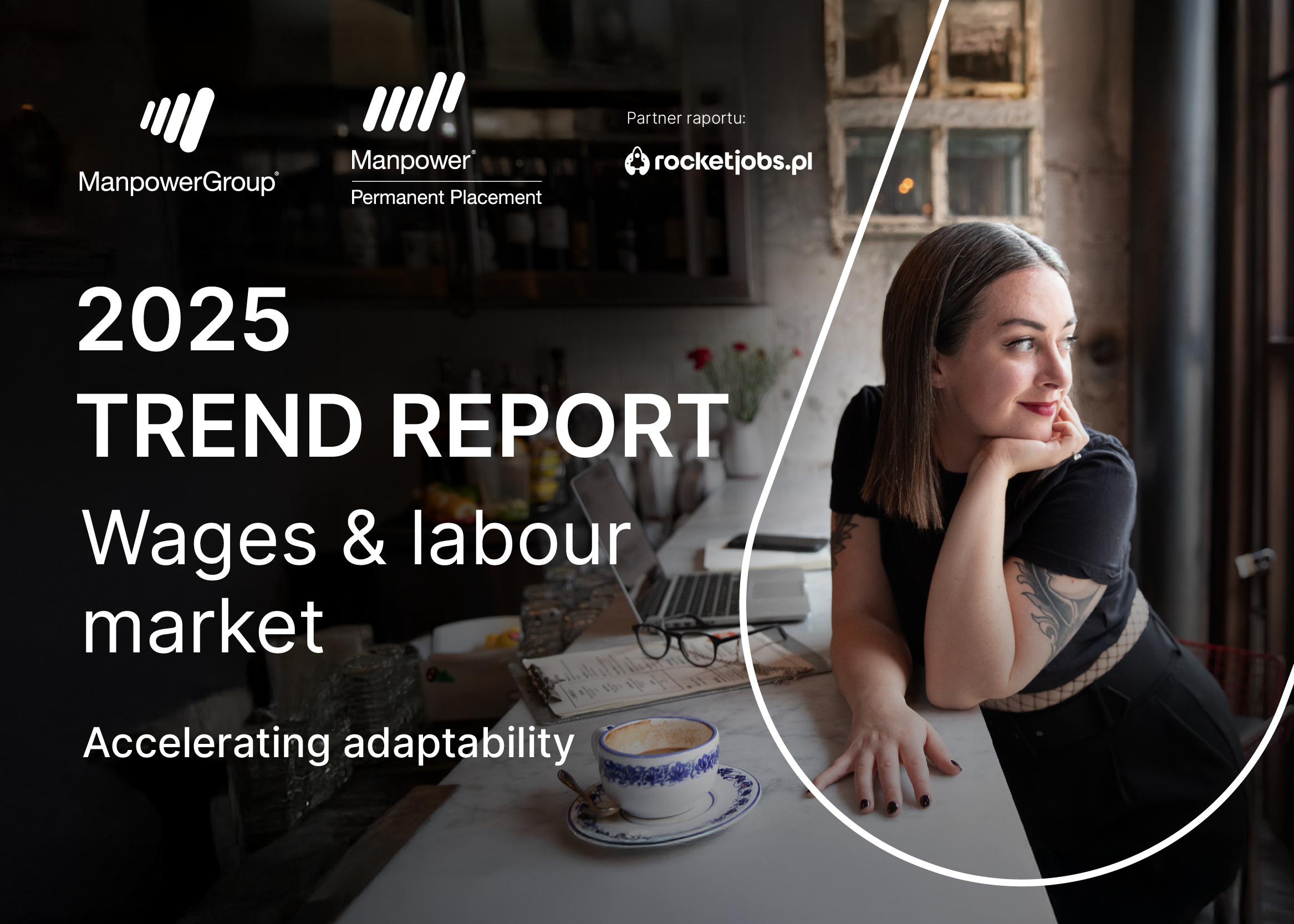 02-2025
02-20252025 Workforce Trends Report. Accelerating Adaptability
Manpower’s “2025 Workforce Trends Report. Accelerating Adaptability” presents the latest trends in the labor market and salaries. The partner of the analysis is rocketjobs.pl.
-
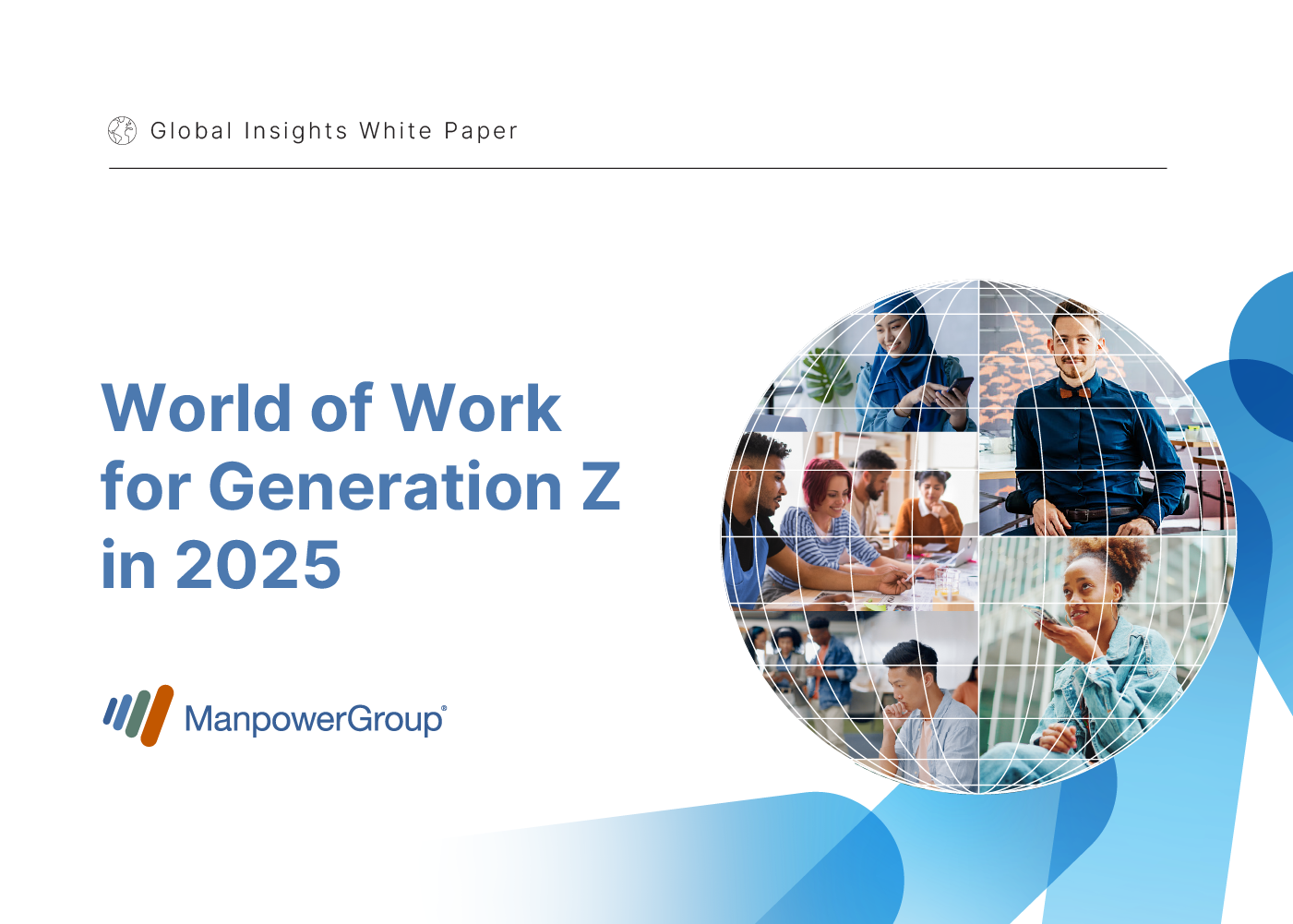 02-2025
02-2025Global Insights White Paper ManpowerGroup „World of Work for Generation Z in 2025”
Global Insights White Paper ManpowerGroup “World of Work for Generation Z in 2025” is a publication full of advice for employers on the generational diversity of teams. You will also find there information about the challenges of the youngest employees in companies, but also their expectations towards the organization.
-
 10-2024
10-2024Global Energy Industry World of Work 2025 Outlook
ManpowerGroup report “Global Energy Industry World of Work 2025 Outlook” presents six the most important global trends. It also shows how they affect at the labor market in this sector of the economy, particularly in the context of challenges related to sustainable development. The publication highlights that investments in renewable energy sources are one of the main trends in the energy and utilities area. The energy industry is struggling with a shortage of skilled workers. Data from the World Economic Forum indicate that the green transition has the potential to create more than 10 million new jobs globally by the end of this decade.
-
 08-2024
08-2024Report “Healthcare & Life Sciences World of Work Outlook 2024”
ManpowerGroup report “Healthcare & Life Sciences World of Work Outlook 2024” presents the seven most important global trends. Transformation within the healthcare and life sciences sector continues to be driven by technological advancements and changing consumer behaviors. As we move further into 2024, these trends are shaping the industry in new and exciting ways. We will explore how global industry leaders will leverage accelerating innovation to create more patient-centric care and drive transformative advancements. For each trend, we will also examine the impact on the future of work.
-
 07-2024
07-2024IT World of Work Outlook 2024
ManpowerGroup report “IT World of Work Outlook 2024” presents the eight most important global trends in new technologies for 2024. The growing importance of sustainable development and green technologies, rapid pace of innovation requiring employees skills in adaptation and collaboration, as well as geopolitical tensions favoring cybercrime, are just some of the challenges facing the IT sector. According to publication, AI can be used across various business domains and have a significant impact on the job market. The intense development of advanced technologies will lead to an increased demand for specialist in this field and enhancing employees sills will be a priority allowing companies to keep pace with dynamic changes.
-
 03-2024
03-2024Report “Gaming World of Work Outlook 2024”
ManpowerGroup report “Gaming World of Work Outlook 2024” presents the five most important global trends in gaming & new technologies for 2024. Gamification in the upskilling process, gamification of the labor market, the use of the most advanced technologies and graphics in everyday life, and even recruitment processes using VR – these are just some of the actual trends affecting the world of work in this industry.
-
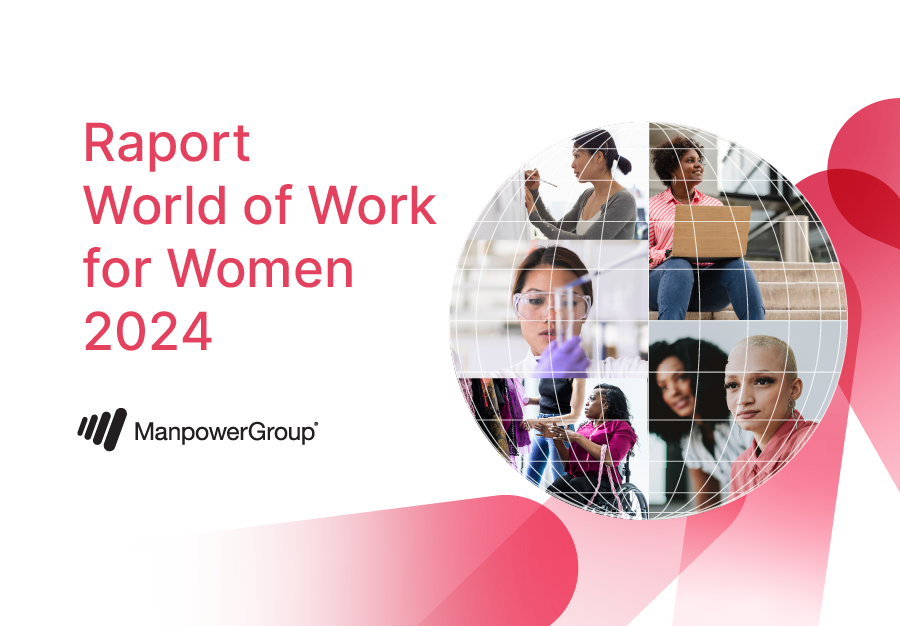 03-2024
03-2024Report “World of Work for Women”
ManpowerGroup report “World of Work for Women” presents the most important trends and information about women’s labor market for 2024. According to the data, women hold less than 1/3 of managerial and leadership positions around the world, although they constitute half of the global professionally active population. Combined with the fact that last year, for every 100 men promoted from entry-level to manager, only 87 women were promoted, almost two-thirds of women professionals are considering changing jobs in the coming months.
-
 02-2024
02-2024Automotive World of Work 2024
ManpowerGroup report “Automotive World of Work” presents the five most important global trends in the industry for 2024. Data cybersecurity, use of the latest technologies, eclectic vehicles and shortening supply chains – these are just some of the current trends in the automotive affecting the labor market. The increased demand for IT talents and skills and the need to constantly improve employee qualifications in order to keep pace with the galloping green transformation mean that employers will have to verify their assumptions regarding development and teams.
-
 02-2024
02-20242024 Workforce Trends Report. “The Age of Adaptability”
“2024 Workforce Trends Report 2024. Age of Adaptability” prepared by Manpower & Rocket Jobs presents the latest labor market and salary trends.
-
 01-1970
01-1970 -
 05-2021
05-2021IT Sector Investment Potential in Poznań
How does the capital of Wielkopolska attract investors from the IT sector? The report IT sector investment potential in Poznań, prepared by ManpowerGroup for the City of Poznań, answers this question, presenting the most significant elements of the local business. To obtain a complete picture of the IT sector in Poznań, ManpowerGroup conducted two surveys. 40 companies representing the local IT sector took part in the interview addressed to the companies. 141 IT specialists answered the questions addressed to employees. As part of the study, both the infrastructure and the educational potential, as well as the competencies of employees, were analyzed. Do they fully meet the employers' needs? We encourage you to read the full report.
-
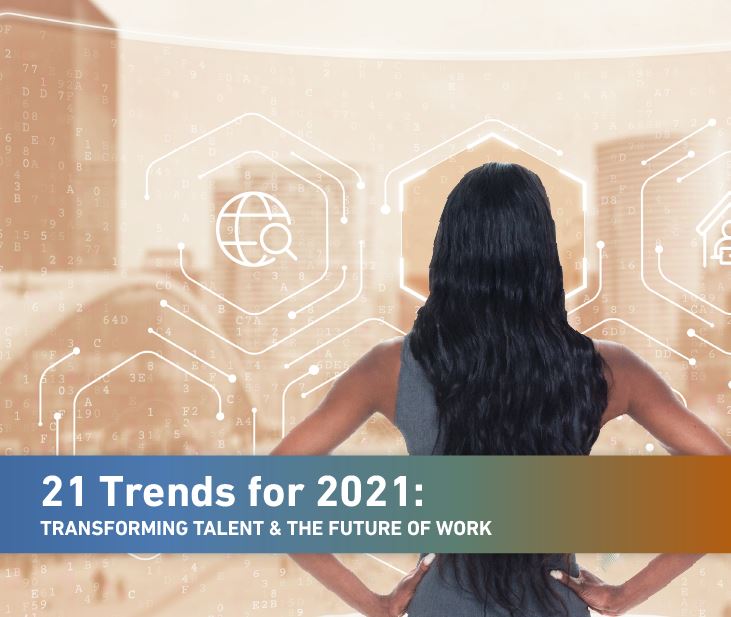 05-2021
05-202121 Trends for 2021: Transforming Talent and the Future of Work
Existing trends are accelerating, driving digital transformation at an unprecedented scale as a result of the global health, economic and social crisis. Coupled with uncertainty and the emergence of new trends organizations need to transform their workforces to ensure they have the skills and competencies needed to retain and retool for an uncertain future
-
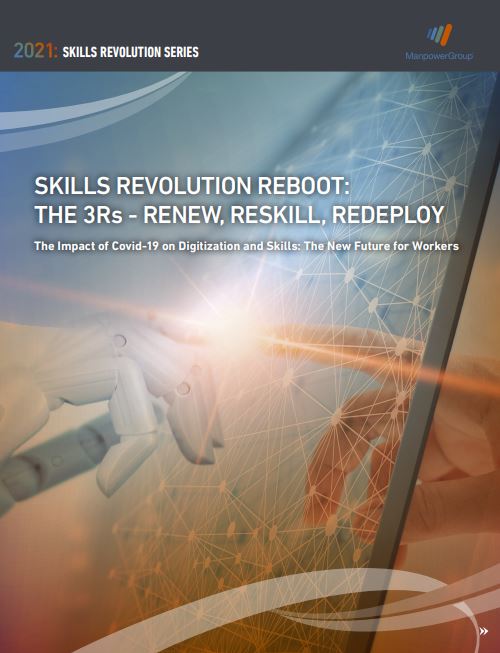 04-2021
04-2021Skills Revolution Reboot 2021
The latest ManpowerGroup report “SKILLS REVOLUTION – REVOLUTION REBOOT: THE 3Rs – RENEW, RESKILL, REDEPLOY” presents the global impact of the pandemic Covid-19 on digitalization development in companies and its consequences in the area of employment.
-
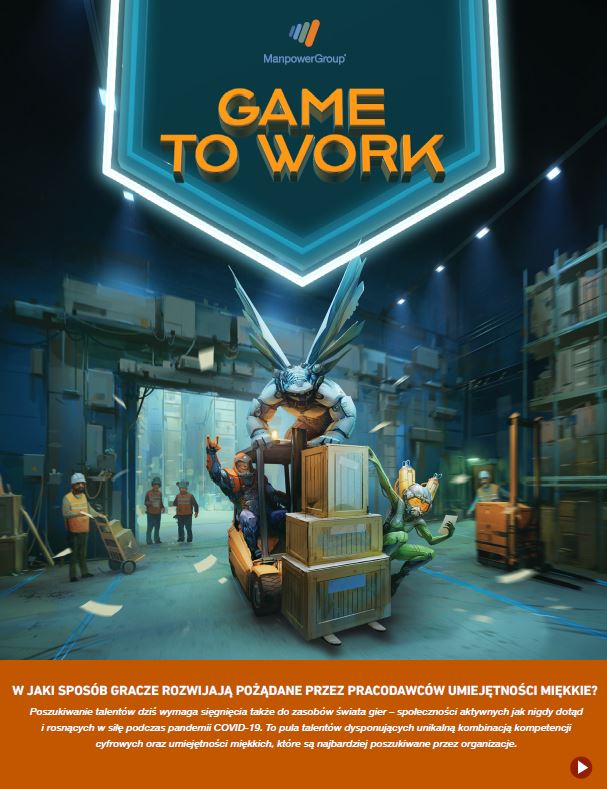 01-2021
01-2021HOW GAMERS ARE DEVELOPING THE SOFT SKILLS EMPLOYERS NEED?
ManpowerGroup has over 70 years of experience translating in-demand skills across different sectors and developing innovative approaches to connect talent to jobs they can thrive in. Today, that includes tapping into gaming communities – more active than ever and growing in size during the COVID-19 pandemic – to identify a vast talent pool with a unique combination of digital capabilities and the soft skills organizations need most.
-
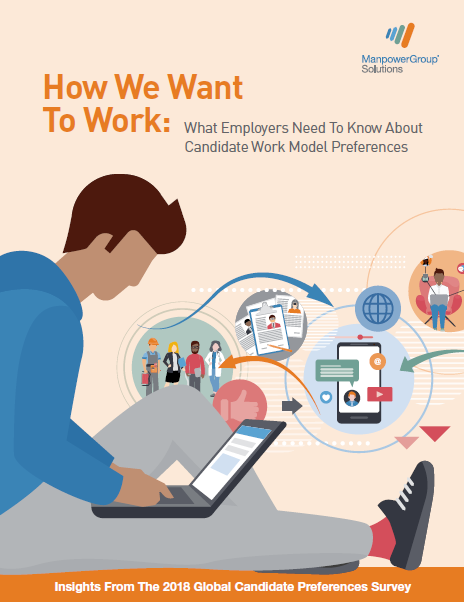 08-2019
08-2019How We Want To Work
Workplace flexibility as a talent management policy is no longer an option – it is an essential practice that enables organizations to attract and develop skilled talent. To better understand how employers can leverage global candidate preferences and perceptions, ManpowerGroup went directly to the source — candidates.
In the Global Candidate Preferences Survey, nearly 18,000 individuals in the workforce between the ages of 18 and 65 share how they want to work, what type of work they would prefer, what motivates them to choose specific model of work.
Candidate preferences and the current workforce mix may vary by market, but themes of flexibility, One Life, autonomy and continuous learning underlie how candidates want to work.
-
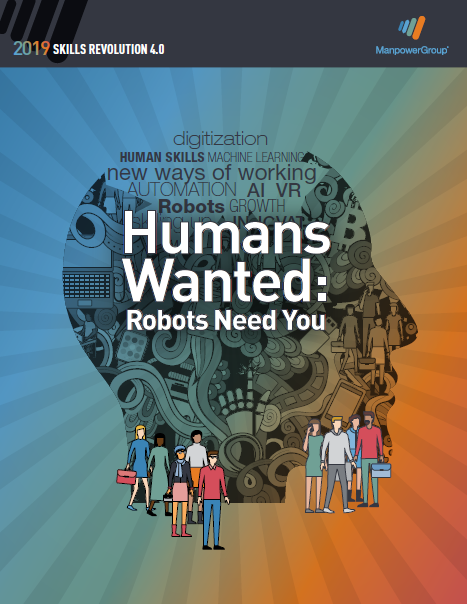 04-2019
04-2019Skills Revolution 4.0 - Humans Wanted: Robots Need You
Robot workers replacing human jobs. Rather than reducing employment opportunities, organizations are investing in digital, shifting tasks to robots and creating jobs. At the same time, with talent shortages at 12-year high and new skills appearing as quickly as old ones disappear, more companies are planning to build talent than ever before. Companies are scaling their upskilling, so their human workforce can perform new and complementary roles to those done by machines. Moreover, employers place increasing value on human skills as automation scales and machines prove better at routine tasks and they are pursuing one or more talent strategies to secure the skills they need.
-
 04-2019
04-2019Inwestment potencial of the IT sector in Poznan
The report “Investment Potential of the IT Sector in Poznan” was prepared by Experis company on request of Poznan City. The following publication provides the readers with information about the current situation, trends, and investment attractiveness of IT Sector in Poznan and Poznan agglomeration. A key element of the report is a study which aimed to verify the potential, possibilities, and barriers to the development of the analyzed industry. The study was conducted by Experis. 25 companies representing the local IT sector were surveyed.
-
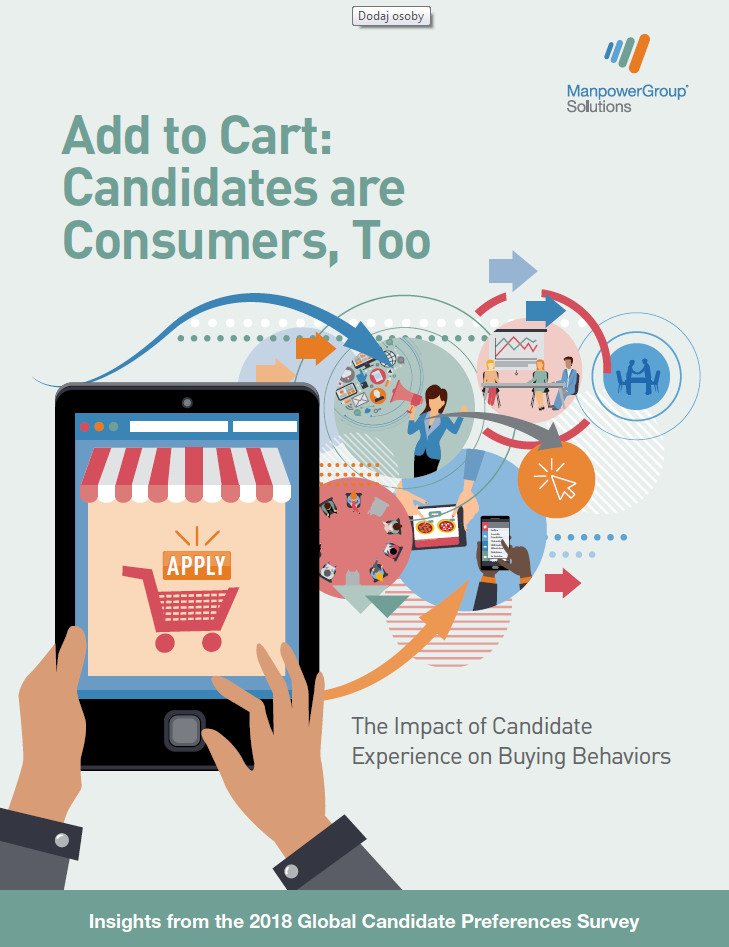 09-2018
09-2018Add to cart candidates are consumers too. The Impact of Candidate Experience on Buying Behaviors.
Employer brand and consumer brand are inextricably linked. Shifting the recruitment process beyond transactional relationships to an opportunity to develop relationships with potential customers and advocates will build trust, loyalty and ultimately impact the bottom line.
54% of candidates globally and 59% of candidates in Poland say that a negative candidate experience makes them less likely to buy a company’s products or service in the future. Moreover more than half of all global candidates and 57% respondents in Poland also say they are more likely to work for a company whose products they buy or use. Most impactful negative experiences on sales are more common than expected. Number one on the list is lack of transparency on salary or job description, with 63% of candidates in Poland saying it impacts purchase intent.
-
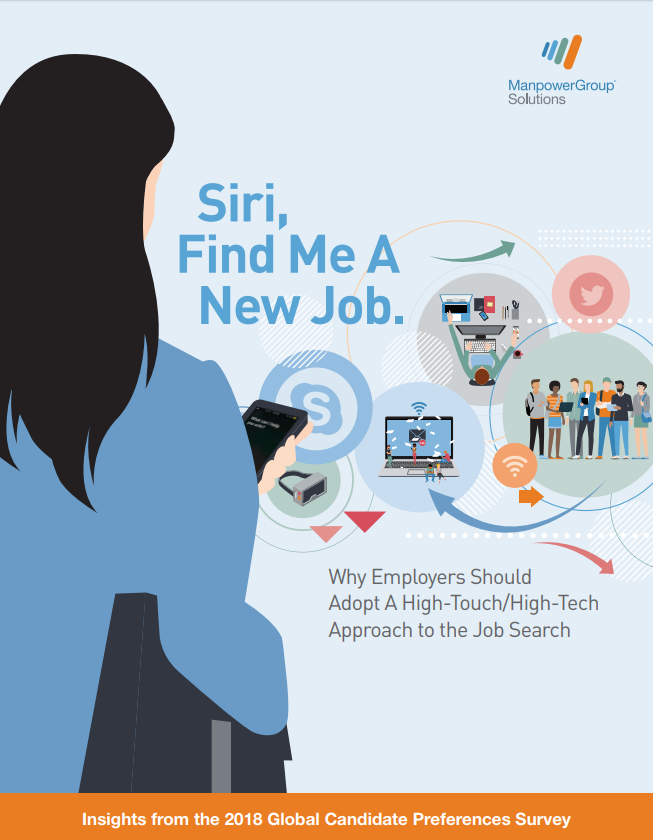 07-2018
07-2018Siri, Find Me A New Job. Why Employers Should Adopt A High-Touch/High-Tech Approach to the Job Search?
Companies are facing an unprecedented scarcity of workers. The global talent shortage is at a 12-year high, with 45% of employers globally reporting difficulty finding the skills they need.1 Qualified candidates are harder than ever to find and employers have attempted to address this challenge by investing in a range of technology tools designed to help them prospect, screen and engage candidates.
-
 04-2018
04-2018From C-Suite to Digital Suite. How to Lead Through Digital Transformation
Digitization, data generation, automation, artificial intelligence, private cloud and
public cloud, machine learning, Moore’s Law, Metcalfe’s Law and more. The impact of
technology on organizations of every size and sector is infinite, and we know the pace of
disruption is accelerating. By 2020, 30 percent of industry revenues will come from new
business models.1 Rapid digital transformation is needed for forward-thinking businesses
to capture opportunity and compete, and leaders must be ready to lead in the digital age. -
 02-2018
02-2018Total Workforce Index
Workforce planning is an increasingly essential component of business strategy. The Total Workforce Index™ allows companies to gain deeper insight into talent trends and workforce composition data to enhance workforce planning decisions.
No results for given criteria.







